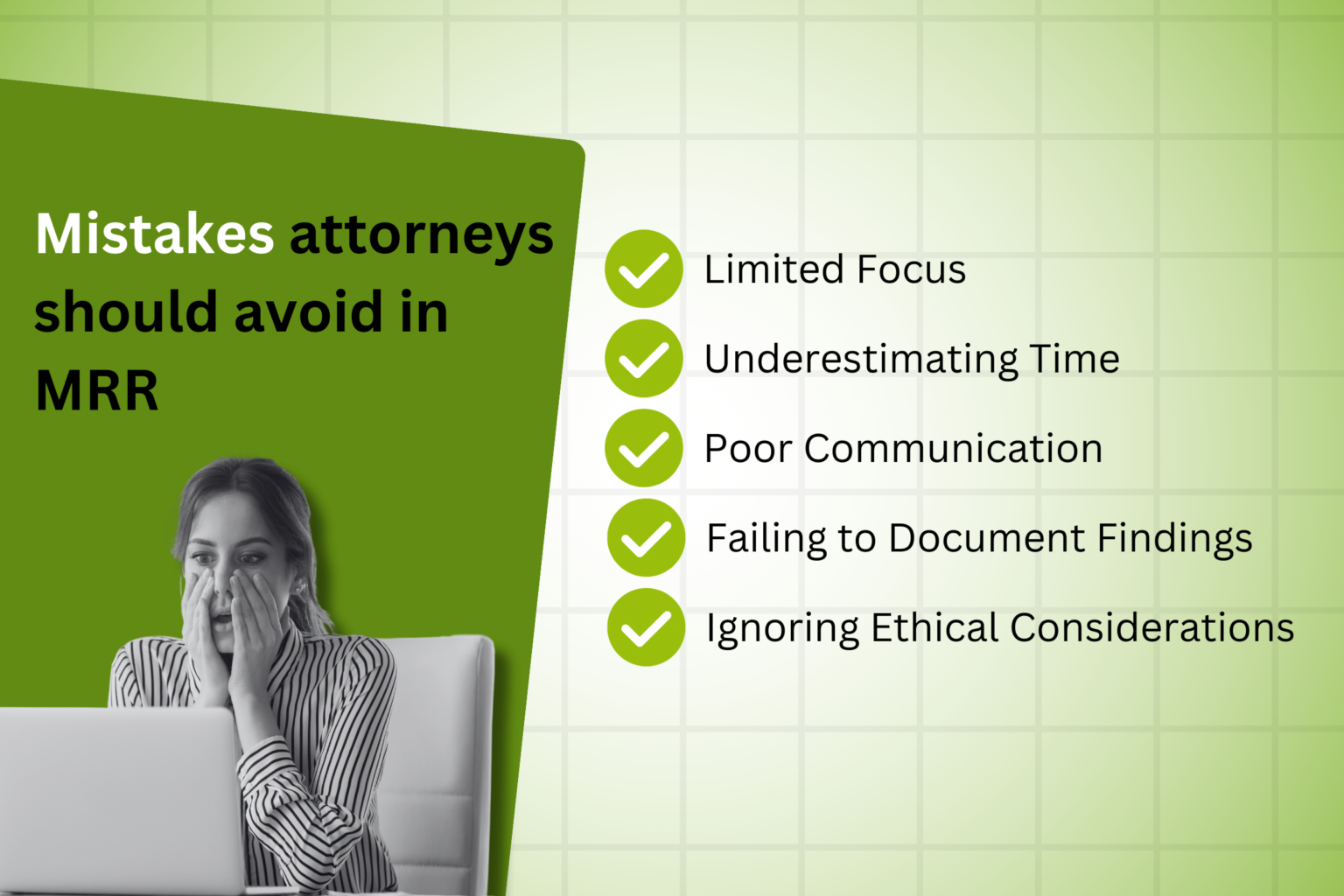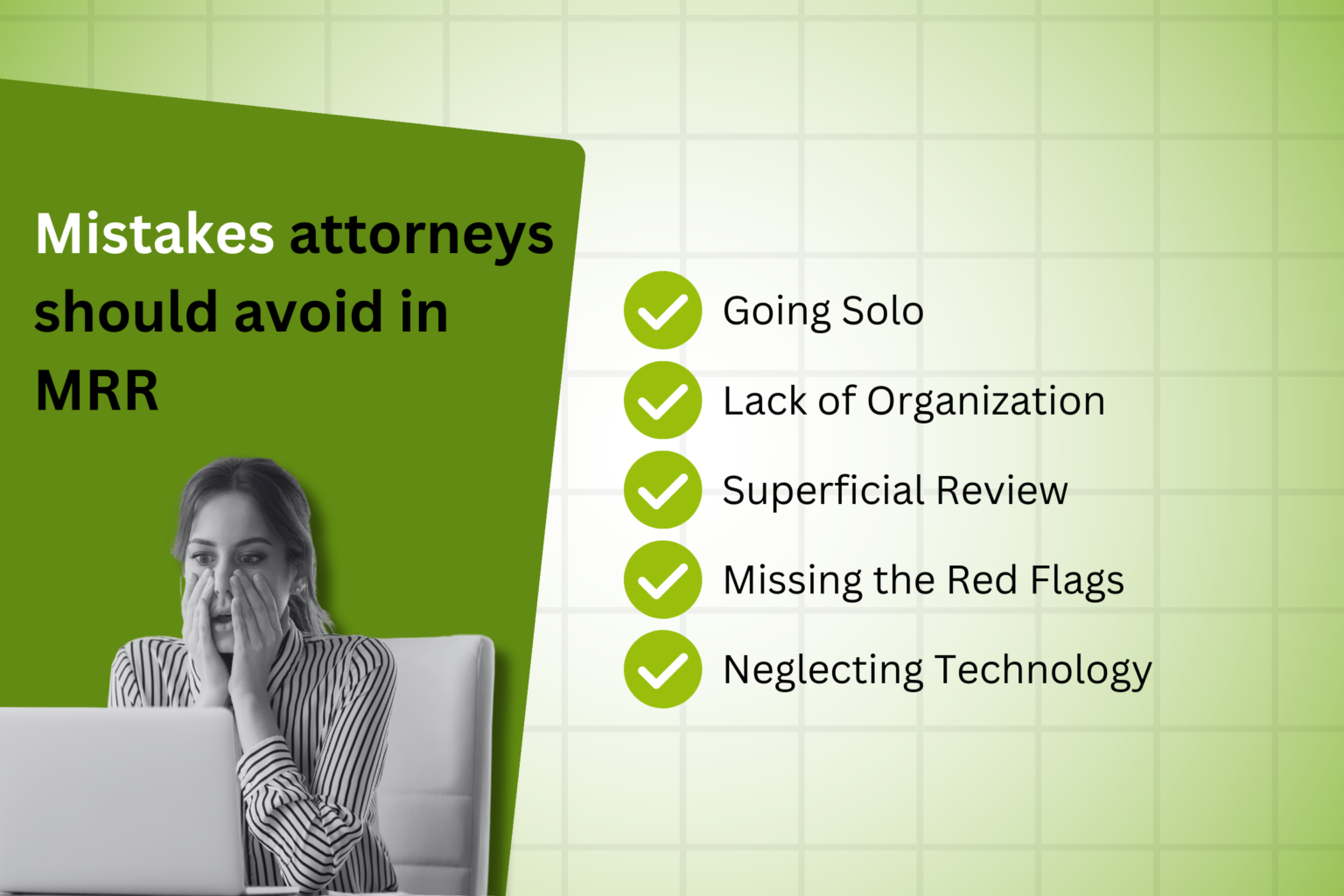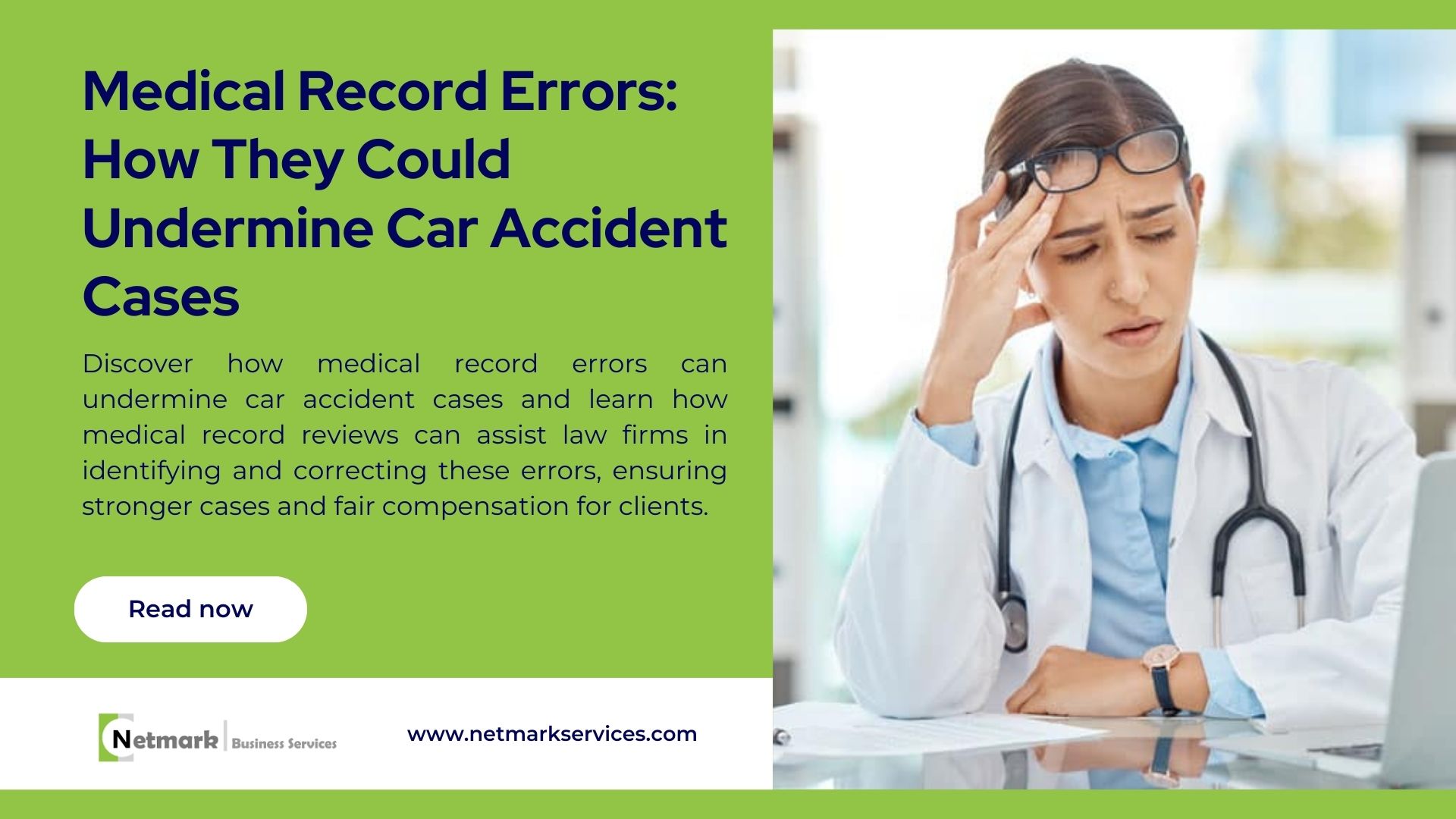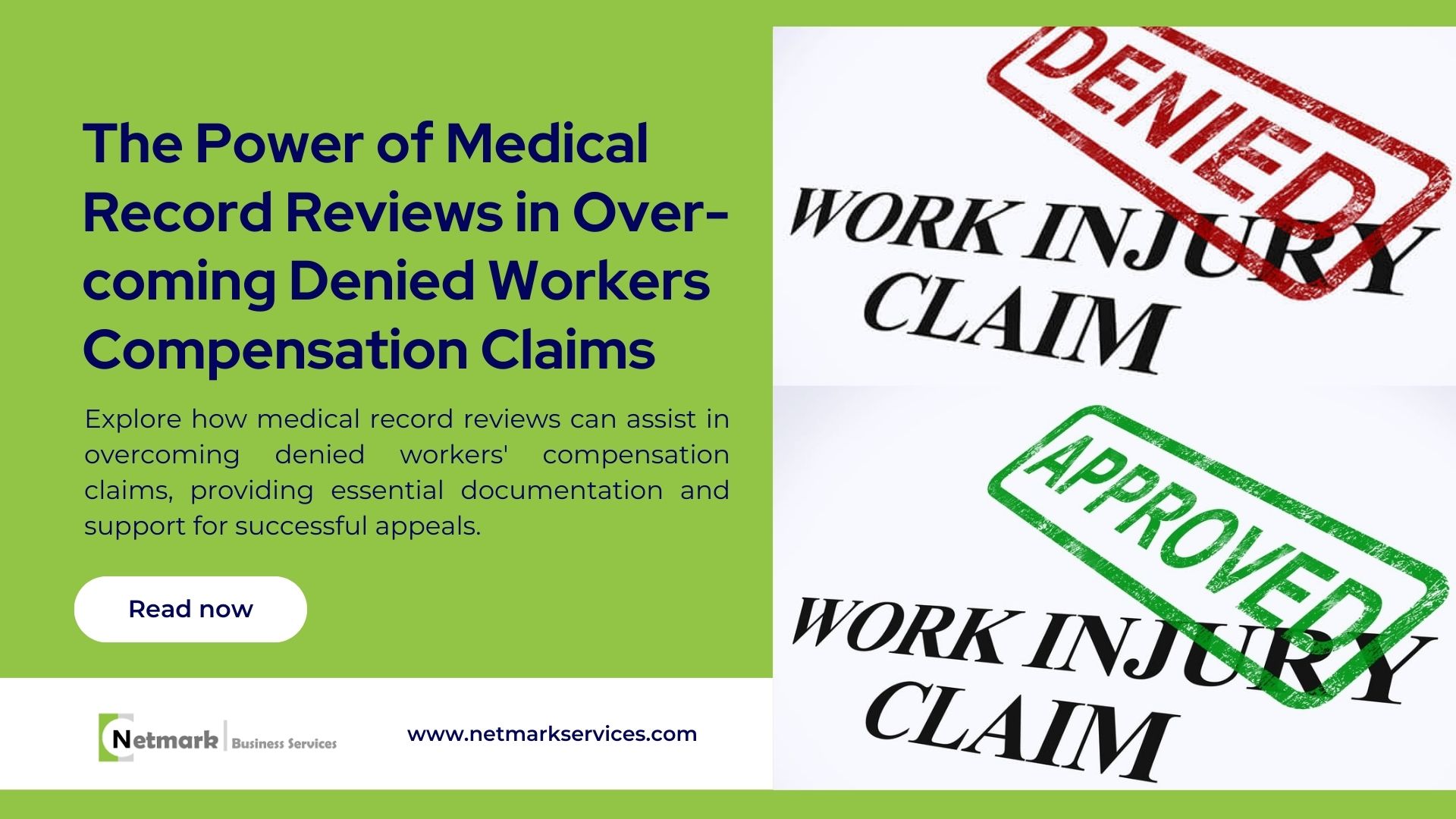TOP 10 MISTAKES ATTORNEYS MAKE DURING MEDICAL RECORD REVIEWS (AND HOW TO AVOID THEM)

In the intricate world of personal injury law, a meticulous medical record review is paramount to building a winning case. These records hold the key to understanding your client’s medical history, treatment course, and crucial details about their injuries. However, even seasoned attorneys can make mistakes during the review process, potentially weakening their client’s case.
This article delves into the top 10 mistakes attorneys make during medical record reviews and provides practical solutions to ensure a flawless review process. By avoiding these pitfalls, you can maximize the value of medical records and significantly strengthen your client’s position.
MISTAKE #1: GOING SOLO
A common mistake is attempting a medical record review without the necessary expertise. Medical terminology can be complex, and deciphering nuances within records requires a trained eye. Consider partnering with a qualified medical professional, such as a Netmark Business Services, to ensure accurate interpretation of medical data.
Solution: Assemble a dedicated team. Include a legal professional familiar with your case and a medical expert to analyze the medical content.
MISTAKE #2: LACK OF ORGANIZATION
Medical records can be voluminous and arrive from various healthcare providers. Disorganization during the review process can lead to wasted time and missed information.
Solution: Implement a system for organization. Create a master list of all medical providers involved, utilize document management software for electronic organization, and arrange records chronologically for a clear picture of your client’s medical journey.

MISTAKE #3: SUPERFICIAL REVIEW
A cursory glance at medical records won’t suffice. A thorough review requires careful examination of key areas, including medical history, diagnoses, treatment plans, physician notes, imaging reports, and billing records.
Solution: Conduct a meticulous review. Focus on key areas, highlight crucial information, and summarize findings of each record to ensure nothing is overlooked.
MISTAKE #4: MISSING THE RED FLAGS
Inconsistencies, missing information, or vague notes within medical records can be red flags pointing towards potential negligence.
Solution: Identify gaps and inconsistencies. Look for missing reports, conflicting diagnoses, incomplete notes, or billing discrepancies.
MISTAKE #5: NEGLECTING TECHNOLOGY
Technology can streamline the medical record review process. Legal software can automate tasks like document organization and keyword searching.
Solution: Leverage technology and expertise. Explore software solutions designed for medical record review and consider partnering with a reputable medical record review service provider.
MISTAKE #6: LIMITED FOCUS
While identifying negligence is crucial, a strong case requires establishing a clear link between the defendant’s actions and your client’s injuries.
Solution: Support Causation. Analyze the timeline of events documented in the records to establish a clear cause-and-effect relationship between the defendant’s actions and your client’s harm.
MISTAKE #7: UNDERESTIMATING TIME
A thorough medical record review takes time. Don’t underestimate the time commitment required for a comprehensive analysis.
Solution: Plan and prioritize. Schedule dedicated time for review and consider outsourcing tasks to a medical record review service provider to free up your valuable time.
MISTAKE #8: POOR COMMUNICATION
Clear communication between the legal and medical team members is essential to ensure everyone understands the case details and objectives of the review.
Solution: Foster effective communication. Establish clear communication channels, delegate tasks based on expertise, and schedule joint review sessions to discuss key findings.
MISTAKE #9: FAILING TO DOCUMENT FINDINGS
Detailed documentation of your review process and findings is essential for maintaining a strong case file.
Solution: Maintain clear documentation. Summarize key findings from each record and create a comprehensive report outlining potential concerns and areas for further investigation.
MISTAKE #10: IGNORING ETHICAL CONSIDERATIONS
Medical record review involves sensitive client information. Maintaining data privacy and adhering to HIPAA regulations are paramount.
Solution: Prioritize data security and HIPAA compliance.
Implement robust data security measures to protect client information.
Ensure all team members involved in the review process are HIPAA-trained.
Partner with a medical record review service provider that prioritizes data security and HIPAA compliance.

By avoiding these common pitfalls and implementing the solutions provided, you can ensure a flawless medical record review process. A thorough review empowers you to extract every crucial piece of information from the medical records, build a compelling case narrative, and ultimately, maximize the compensation your client deserves.
Don’t let critical evidence remain hidden within your client’s medical records. Get a Call with Netmark Business Services today and discuss how our expert medical record review team can help you out.





